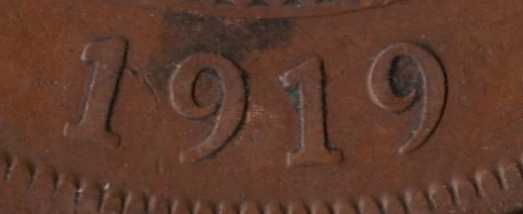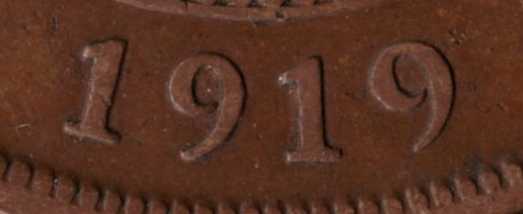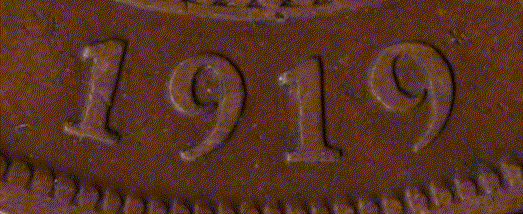Australian pennies dated 1919 were minted in Melbourne using working dies supplied
from London. This was the first year that pennies were minted in Australia. All
1919 pennies feature the London obverse and Birmingham reverse.
The 1919 bronze penny was almost never issued25.
At that time the Melbourne Mint was well prepared to issue square nickel pennies
and halfpennies and had not ordered bronze dies from the Royal Mint until February
1919. The dies didn't arrive until August of that year and it was soon discovered
that insufficient had been ordered to meet the demand. Technicians at the Melbourne
Mint used a pair of working dies to create punches and thence to press further working
dies.
Mintage
Designation
|
P19M.1B
|
Obverse
|
London
|
Reverse
|
Birmingham
|
Mint
|
Melbourne
|
Mintge
|
5,817,000
|
The 1919 penny occurs in several varieties but probably somewhat fewer than reported
by some writers.
For a start, there are three distinct dot varieties:
No dot
Dot under lower scroll
Dot under lower scroll and above upper scroll
and there are two distinct orientations of the final 9 in the date. Dean1 and Locke
report three orientations of the final 9:
Final 9 leans left
Final 9 upright
Final 9 leans right
but from careful examination of 36 coins I have formed the opinion that the third
orientation is just the result of distortion of a working punch or die(s) via the
same process which is responsible for fishtailing (curved base lettering). I arrived
at this conclusion after making 36 separate computer images, all carefully aligned
and sized, then viewing selected images in sequence as a slow movie. I was able
to separate the images into just two groups based on the orientation of the date
figures; the first group contained just nine coins with the final 9 sloping noticeably
to the left, the second group comprised the remaining 27 coins with the final 9
in a more upright position. It is tempting to speculate that the specimens described
by others as having a right-sloping final 9 were struck from the Melbourne dies
but I have not investigated this possibility.
Even with the simplification, the 1919 penny is a very complex issue. Ignoring
fishtailing and right-sloping nines and the fine differences between coins struck
from dies supplied by the Royal Mint and those from dies cloned in Melbourne, the
distinct varieties include at least the following:
Reverses
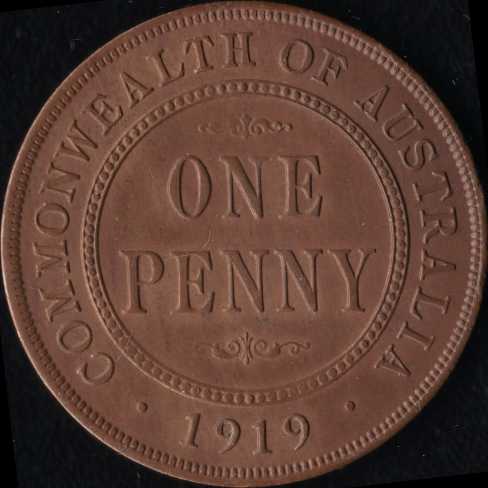
|
P19M.1B.1
No dot, upright final 9.
|
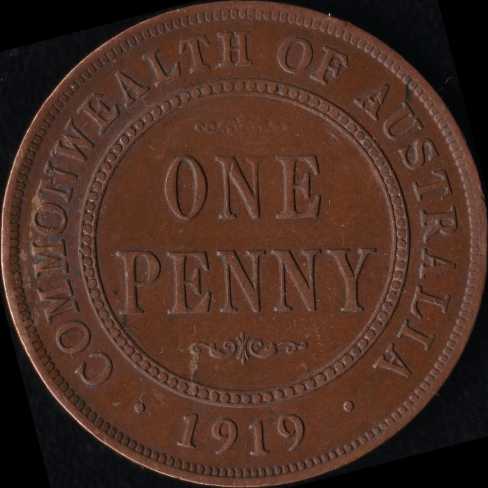
|
P19M.1B.2
No dot. Final 9 slopes left.
|
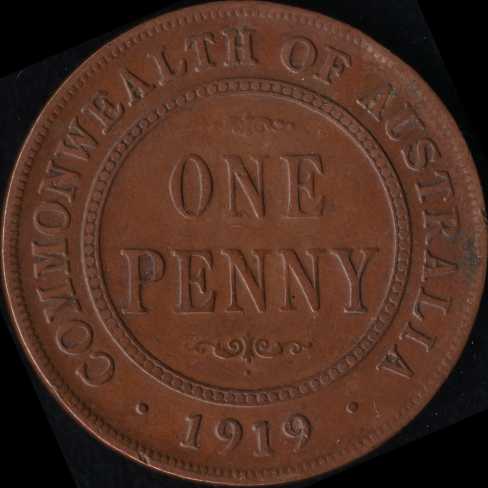
|
P19M.1B.3
Dot below bottom scroll. Final 9 upright.
|
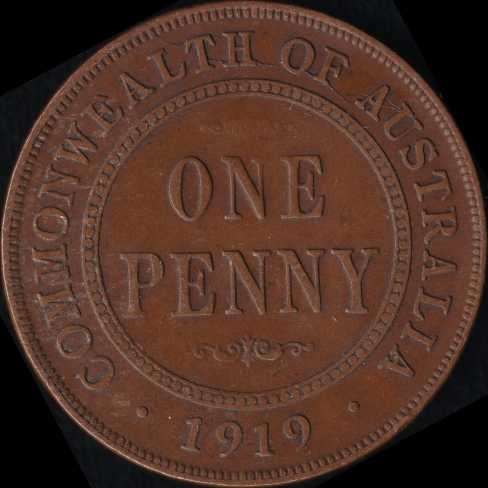
|
P19M.1B.4
Dot below bottom scroll. Final 9 leans left.
(The dot really is there!)
|
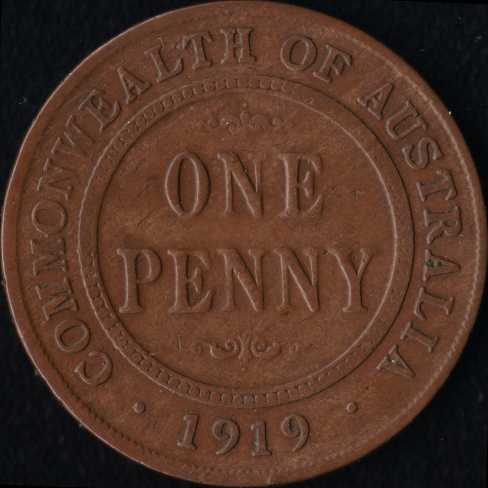
|
P19M.1B.5
Dot below bottom scroll and above top scroll. Final 9 upright.
|
Obviously there may be a sixth variety, i.e. one with two dots and a left-sloping
final 9.
In my sample of 36 coins, 14 were without any dot, 20 had a dot below the lower
scroll and 2 had two dots. Of the nine coins with a left-sloping final 9, 3 had
a dot under the bottom scroll.
The count of double-dot coins is biased because I had specifically purchased
one of those. The other 35 coins in my collection were not selectively acquired.
Even so, not too much can be inferred from such a small sample.
[ Home Page | Pennies
| Australian coins ]
Visitors 
Most recent revision: 14th September 2002
Copyright ©2002, Triton Technologies International Ltd, all rights reserved.





